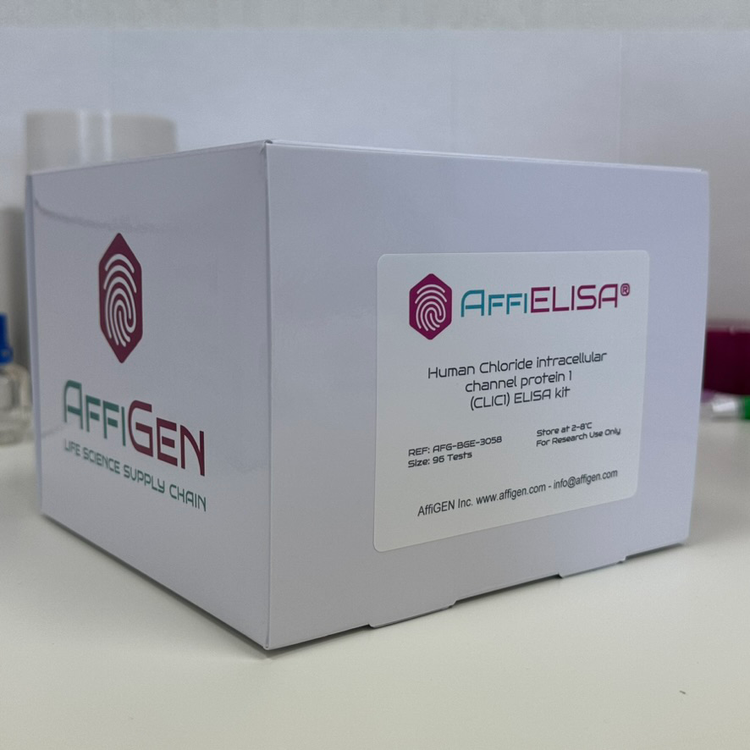Overview
Chloride intracellular channel proteins (CLICs) are a unique family of multifunctional proteins found in various tissues and cellular compartments. Initially, CLICs were considered to be solely involved in chloride ion transport across cellular membranes. However, recent research has uncovered their involvement in numerous cellular processes, including ion channel activity, cell signaling, and regulation of cell morphology.
The CLIC family comprises six members: CLIC1, CLIC2, CLIC3, CLIC4, CLIC5, and CLIC6. Each member exhibits distinct tissue expression patterns and subcellular localizations, suggesting specialized roles in cellular functions.
The Significance of AffiELISA® CLIC Kits
- Accurate Quantification: AffiELISA® CLIC kits provide highly sensitive and specific tools for the quantification of individual CLIC proteins in biological samples. This accuracy is crucial for understanding the role of CLICs in diverse physiological and pathological contexts.
- Versatility: Researchers can use AffiELISA® CLIC kits for a wide range of sample types, including serum, plasma, tissue lysates, and cultured cells. This versatility allows investigations in different experimental systems.
- Research Applications: These ELISA kits find applications in various research areas, such as cancer biology, neuroscience, immunology, and cardiology, where CLIC proteins are implicated in disease pathogenesis and progression.
Applications in Cancer Research
CLIC proteins have been associated with cancer development and progression. For instance, CLIC1 overexpression is linked to tumor invasion and metastasis, making it a potential therapeutic target. AffiELISA® CLIC kits enable researchers to quantify specific CLIC proteins in cancer tissues, facilitating the assessment of their involvement in tumor biology.
Neuroscience Research
In the nervous system, CLICs play critical roles in synaptic function, neurite outgrowth, and neuroprotection. AffiELISA® CLIC kits allow researchers to investigate changes in CLIC expression levels under different conditions, shedding light on their contribution to neurological disorders and neurodegenerative diseases.
Immunology and Inflammation
CLICs are involved in immune cell activation and inflammation processes. Researchers can use these ELISA kits to quantify CLIC proteins in immune cells or inflamed tissues, aiding in the understanding of their roles in immune responses and autoimmune diseases.
Cardiovascular Research
CLIC4, in particular, has been implicated in cardiac hypertrophy and fibrosis. AffiELISA® CLIC kits enable the measurement of CLIC4 levels in cardiac tissue, providing insights into its role in heart-related diseases.
Conclusion
AffiELISA® CLIC1, CLIC2, CLIC3, CLIC4, CLIC5, and CLIC6 ELISA kits are indispensable tools for researchers studying the diverse functions of CLIC proteins in various biological processes and diseases. Their accuracy, versatility, and broad applications make them essential for advancing our understanding of CLICs' roles in health and disease. By using these kits, scientists can uncover novel insights into the functions of CLIC proteins and potentially discover new therapeutic targets for a wide range of disorders.









